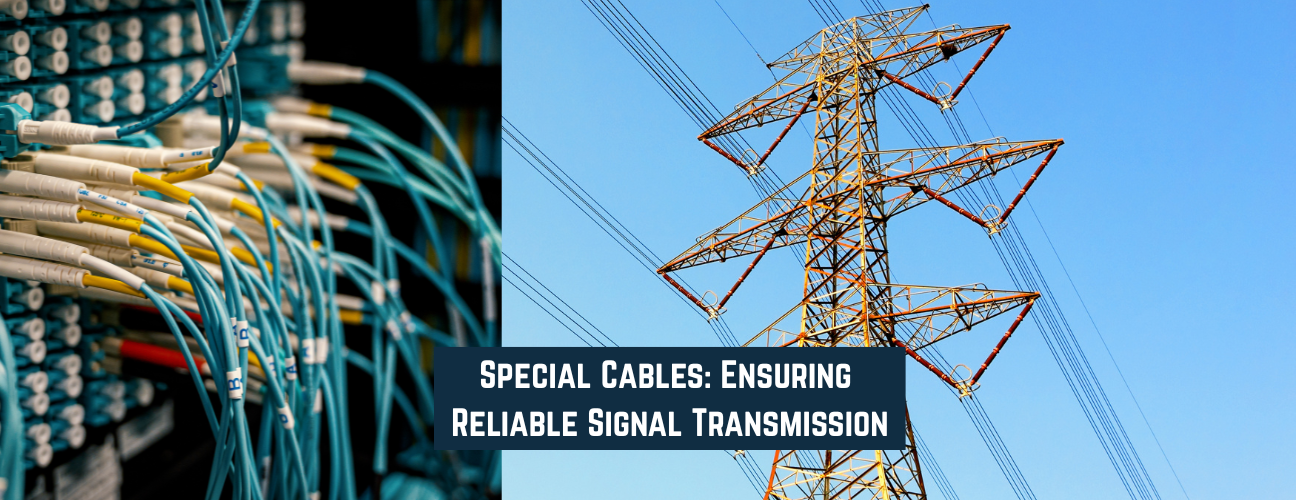Table of Contents
In today’s data-driven industrial environments, control systems are only as effective as the signal transmission pathways that power them. These pathways – often routed through challenging conditions like electrical noise, moisture, vibration and extreme temperatures – demand more than just standard wiring. Enter Special Cables engineered to ensure robust, accurate and continuous signal transmission where conventional solutions fall short.
Whether you’re dealing with high-frequency analog signals, real-time control data or digital transmission over long distances, using Application-Specific Cables can significantly enhance the performance and safety of your industrial infrastructure. These cables are not off-the-shelf items; they are developed with precise technical specifications to meet the demands of automated plants, process control networks and mission-critical communication systems.
In this guide, we explore how High Performance Cables optimize signal integrity, reduce electromagnetic interference and support complex industrial control topologies.
The Role of Signal Integrity in Industrial Control
Reliable signal transmission is the cornerstone of industrial automation. From programmable logic controllers (PLCs) to human-machine interfaces (HMIs) and remote terminal units (RTUs), accurate communication ensures safety, responsiveness and productivity.
Precision Cables are engineered with low-capacitance insulation, optimized impedance and shielding systems that reduce crosstalk and electromagnetic interference (EMI). These characteristics preserve the fidelity of signals, especially in environments where multiple systems operate concurrently.
Industrial control cables often route signals across expansive facilities, subject to fluctuating voltages, high-power machinery and environmental hazards. Using Customized Electrical Cables ensures that data transmission remains stable and timely – even in these hostile conditions.
Why Standard Cables Fall Short in Industrial Environments
- High electromagnetic fields
- Continuous mechanical vibration
- Exposure to oils, solvents or corrosive gases
- Temperature extremes and humidity
Advanced Cables overcome these limitations through:
- Precision-stranded copper conductors for better conductivity
- Foam-skin dielectric layers for low signal attenuation
- Double-layer shielding for maximum EMI protection
- Water-blocking compounds or jelly-filling for moisture resistance
- Armouring for mechanical and rodent protection
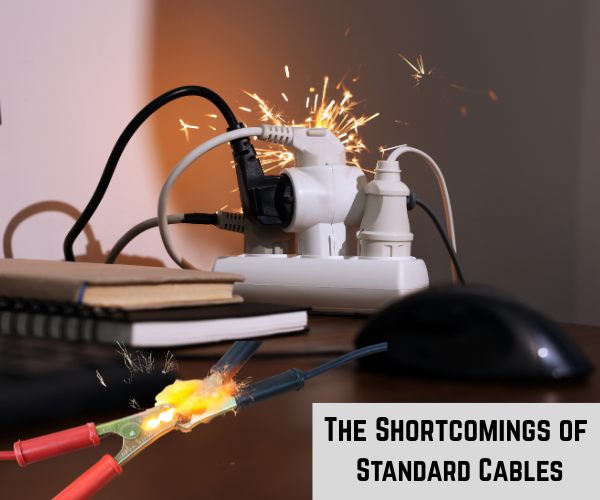
Testimonials
Guys it’s really good quality of cables…..
I am also using. So why are you wating🧐
Order Now………
Key Features of Special Cables for Signal Transmission
Shielding for Electromagnetic Noise Reduction
Screened Special Cables are indispensable in environments where EMI is prevalent. Shielding materials such as aluminum-polyester tape, braided copper or composite laminates block interference from adjacent cables, motors and RF sources.
These cables may include:
- Overall shielding for cable bundles
- Individual shielding on pairs or triads for high-precision analog signals
- Drain wires for effective grounding and noise suppression
This architecture ensures signal clarity and minimizes latency, which is vital in real-time process control.
- Moisture and Chemical Resistance
Industrial control systems often span outdoor or subterranean environments. Jelly-filled Special Application Cables prevent moisture ingress and protect against signal degradation in humid or chemically aggressive areas.
High-grade sheathing materials such as HR PVC, ZHLS, PE and EPR are employed to resist oil, acids, UV radiation and saline atmospheres. These properties ensure long-term stability and reduce cable failure rates.
- Mechanical Reinforcement and Armour
Engineering Cables used in high-traffic or underground installations often include galvanized steel wire armour (GSWA) or interlocked metal tapes. This added protection shields the inner cores from crushing, impact and rodent damage.
In areas with dynamic load or moving machinery, Precision Cables may also be designed with flexible, vibration-absorbing layers that protect signal-carrying conductors from fatigue.
Applications of Custom and Specialty Cables in Control Systems
PLC Communication and Control Loops
In distributed control systems (DCS) and PLC-based architectures, accuracy and timing are crucial. Tailor-Made Cables with balanced impedance and matched pair constructions help maintain synchronization across I/O modules and reduce error rates.
Data Acquisition and Sensor Feedback
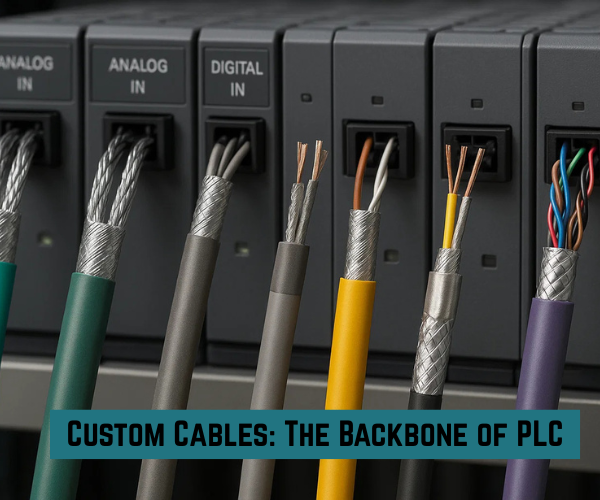
Analog and digital signals from sensors, flow meters, thermocouples and encoders must be transmitted with zero distortion. Special Cables with low capacitance insulation and individual shielding maintain signal integrity over extended distances.
SCADA and Remote Monitoring Systems
High-performance Application-Specific Cables enable seamless data flow in SCADA environments, linking RTUs to centralized control rooms. Shielded and moisture-protected designs ensure uptime even in remote or unmanned installations.
High-Speed Communication and Carrier Systems
Industrial Ethernet, CAN bus and Modbus systems require cables with consistent electrical characteristics. Advanced Cables compatible with high-frequency protocols reduce bit errors and latency, essential for deterministic control.
Material Options for Specialized Sheathing and Insulation
Each industrial environment demands a unique material profile. Some of the commonly used insulation and sheathing materials in Specialty Cables include:
- PVC (Polyvinyl Chloride): General purpose, flexible, economical
- PE (Polyethylene): Low dielectric constant, excellent moisture resistance
- EPR (Ethylene Propylene Rubber): High flexibility, thermal and chemical resistance
- Silicone: Wide temperature tolerance, flame-retardant
- Teflon (PTFE/FEP): Chemically inert, high heat resistance
- ZHLS (Zero Halogen Low Smoke): Safe for enclosed and public spaces
Selecting the correct material depends on environmental exposure, routing method, voltage class and signal sensitivity.
Customization: The Core Advantage of Special Cables
Customized Electrical Cables offer significant advantages over generic options by aligning with exact performance parameters. Through collaboration between design engineers and cable manufacturers, tailored solutions can be created with:
- Specific conductor sizes and materials
- Customized core counts, color codes and shielding layers
- Sheathing optimized for fire safety, flexibility or chemical resistance
- Integration of control and communication lines in a single hybrid cable
These Technical Cables not only enhance reliability but simplify installation and future-proof control networks.
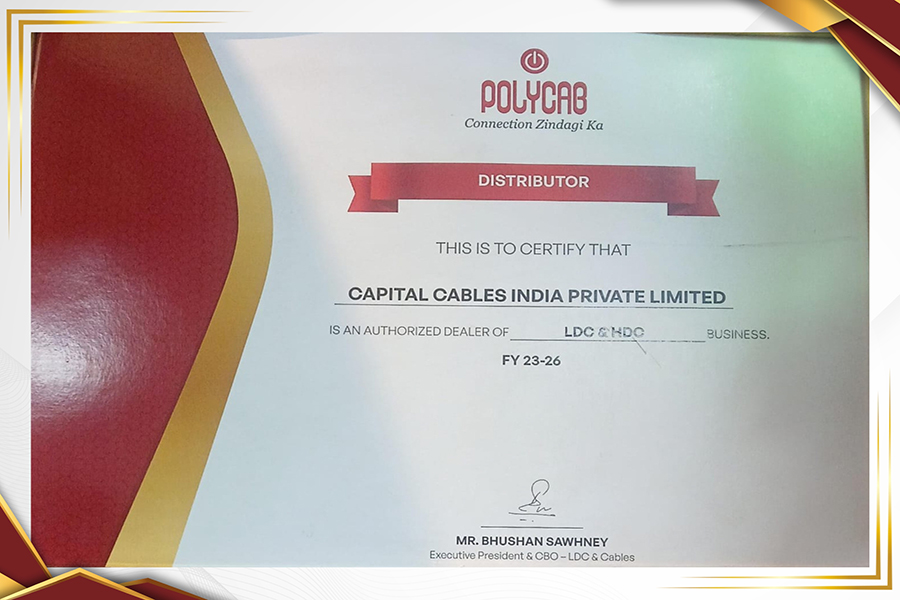
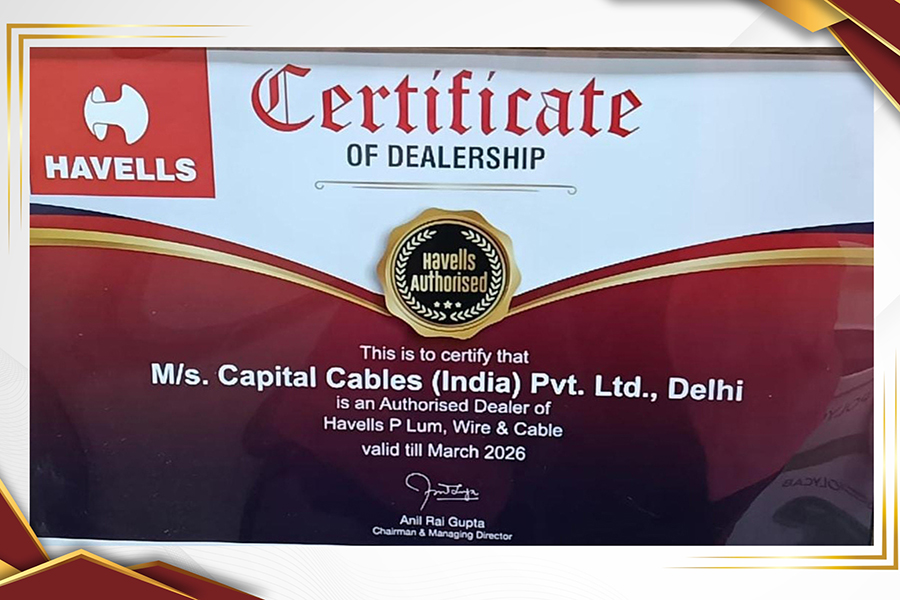
Conclusion
In the landscape of industrial automation, signal reliability is paramount. Standard cabling often fails to deliver the precision, durability and environmental resistance required by modern control systems. This is where Special Cables truly shine.
By investing in the right Specialty Cables – engineered for specific operational conditions – industries can enhance system uptime, data accuracy and long-term reliability. Whether for control loops, sensor feedback or high-speed communication, these cables form the backbone of resilient and responsive industrial control networks.
Table of Contents


